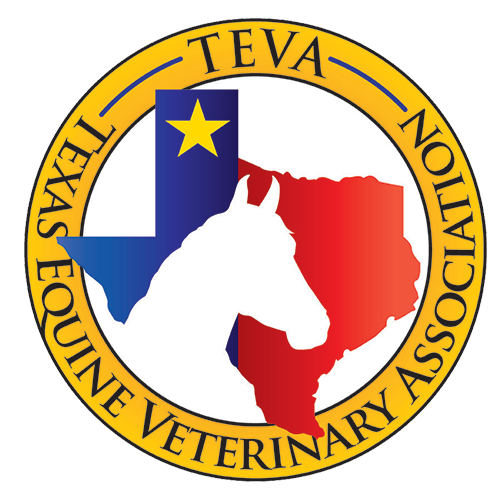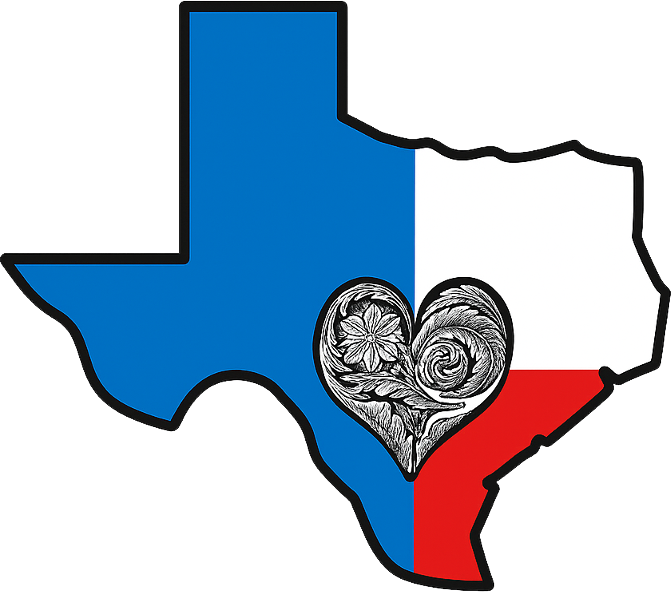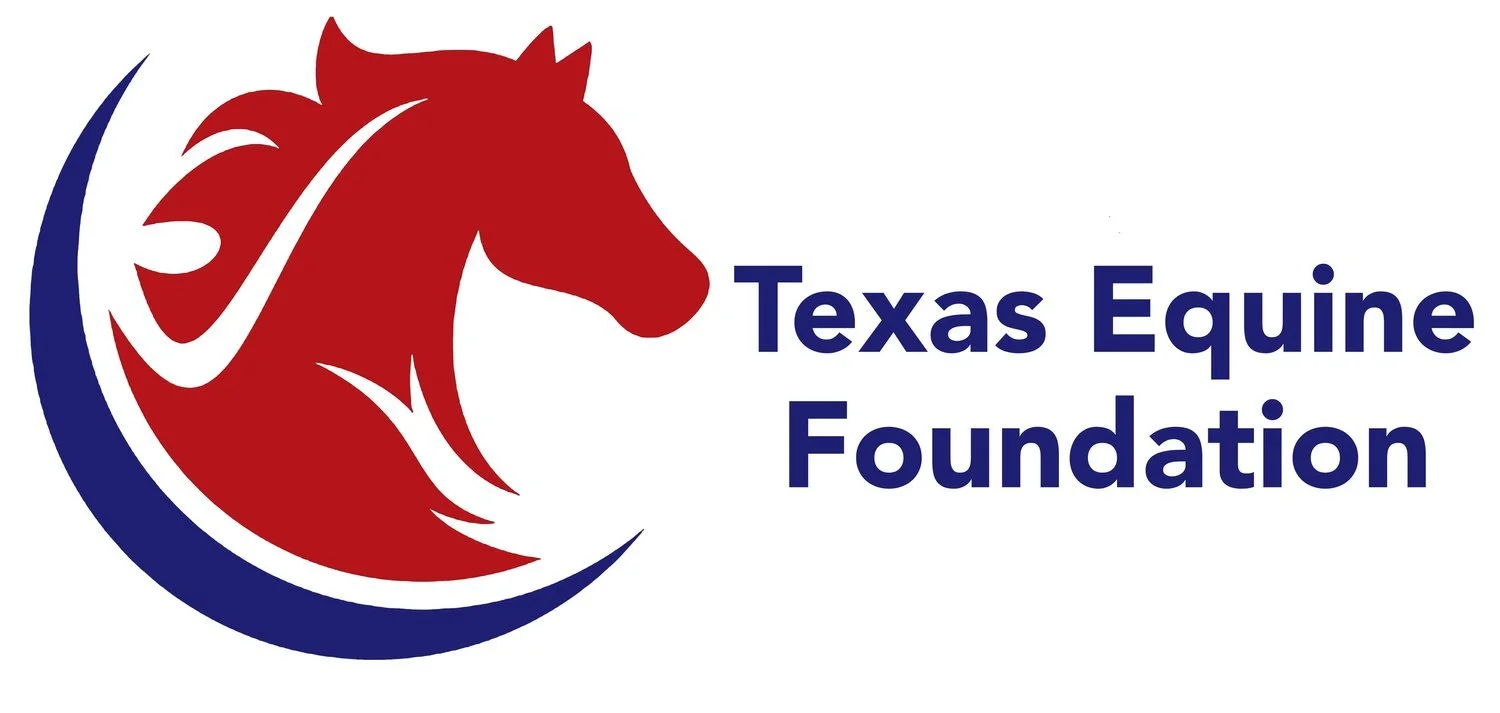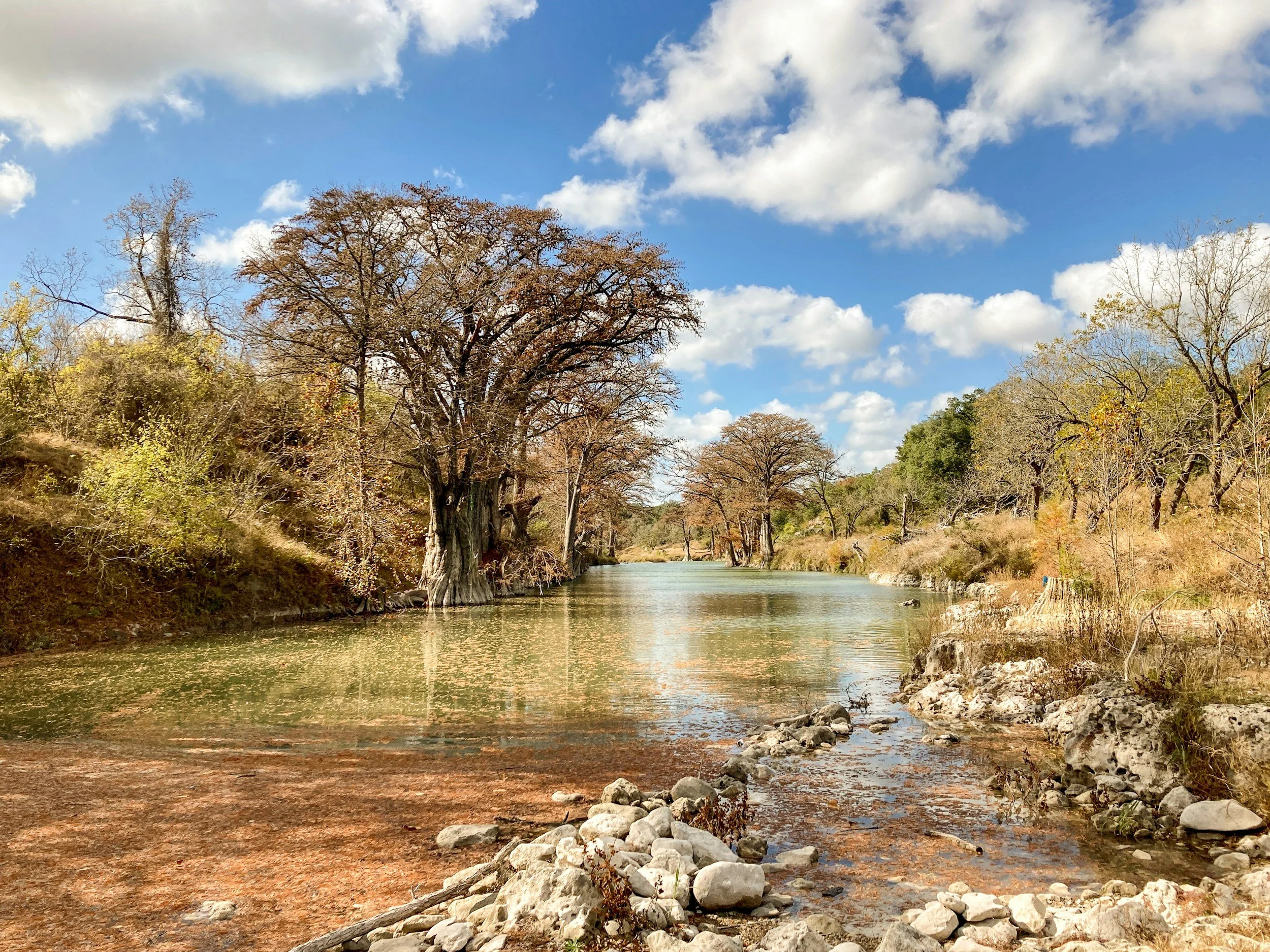
BACK IN THE SADDLE
Partnering to rebuild the horse camps of Kerr County.
Powered by Texas Equine Foundation
Back in the Saddle: Restoring Horse Camps in the Texas Hill Country
The Devastation: July 4, 2025 Floods
On the morning of July 4, 2025, flash floods tore through Kerr County and surrounding areas of the Texas Hill Country following record-breaking rainfall. With little warning, creeks overflowed, fences washed out, and roads vanished under rushing water. Some of the region’s most cherished youth camps—many of them operating for generations—were directly in the path.
Among the hardest hit were the horse programs. Entire barns collapsed. Dozens of saddles and bridles were destroyed or swept away. Horses had to be evacuated or were displaced. Fencing, feed, grooming equipment, riding arenas, and storage sheds were all lost. For many of these camps, horses are more than just a summer activity—they are the heart of the experience. The horse programs teach responsibility, courage, empathy, and confidence to thousands of children each year. And in a single storm, those opportunities disappeared.
Many of the camps affected are family-run or nonprofit organizations that do not carry the financial reserves to rebuild quickly. Insurance coverage is inconsistent or insufficient. And while staff, volunteers, and families are rallying, the scale of loss is beyond what individual camps can shoulder alone.
The Response: Back in the Saddle Campaign
In response, the Back in the Saddle campaign was launched—a coordinated effort to restore the equine infrastructure and programming at the youth camps impacted by the July 2025 floods.
Led by veterinarians, camp leaders, and equine advocates across Texas, the campaign is focused on:
Rebuilding barns and fencing
Replacing lost tack and equipment
Reuniting or rehoming displaced horses
Restoring riding arenas and training facilities
Ensuring safe and accessible horse care for campers in 2026
All donations to the campaign are collected and distributed through the Texas Equine Foundation, which ensures that funding reaches the camps in greatest need with full transparency and oversight.
This effort is more than just replacing things—it’s about restoring the irreplaceable. The lessons learned in the saddle. The confidence gained through caring for another living being. The healing that happens when a child brushes down a horse or finds their voice atop one. These camps are where Texas youth discover responsibility, resilience, and belonging—and where horses are the conduit to that growth.

How You Can Help
The Back in the Saddle campaign is actively seeking support from:
Foundations committed to youth development, rural resilience, or animal welfare
Companies rooted in equine, ranching, or outdoor traditions
Individuals who believe in the transformational power of camp and horses
Together, we can get these programs—and these kids—Back in the Saddle.
About the Camps
-
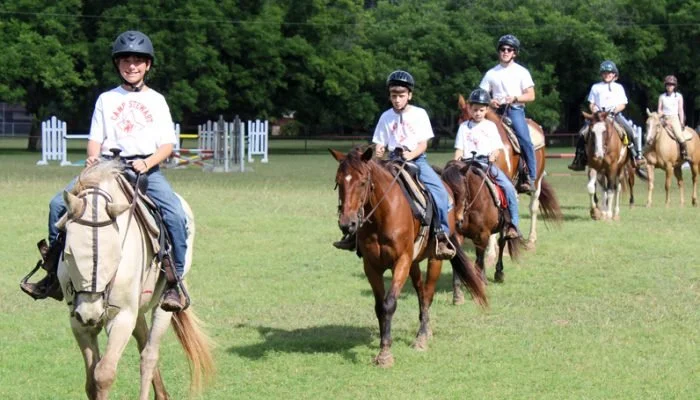
Camp Stewart
Camp Stewart: Building Cowboys, Leaders, and Lifelong Horsemen
Since its founding in 1924, Camp Stewart has been a cornerstone of the Texas Hill Country, raising generations of boys into leaders through horsemanship, sportsmanship, and camaraderie. With 53–55 horses on site, every camper participates in riding, making horses central to the Stewart experience. The camp’s alumni association even helps provide scholarships and donated horses to ensure the program thrives.
When historic floods struck on July 4, 2025, Stewart was not in session, but the camp was still hit hard. Fences were washed out, the pump house damaged, and the arena footing swept away. Several cows and one bull were lost, and both the archery and rifle ranges were destroyed.
The camp was forced to refund tuition and remain closed for the rest of the 2025 season. Yet Stewart’s horse program remains strong: more than 500 campers a year, plus a 15–20 member intercollegiate team from Schreiner University, all benefit from the lessons of grit, discipline, and horsemanship that have defined Stewart for over a century.
With your support, Camp Stewart can rebuild and continue shaping the next generation of cowboys, leaders, and horsemen.
Together, we can help Camp Stewart get back in the saddle.
-

Camp Honey
Camp Honey Creek: Preserving Traditions Since 1937
Founded in 1937, Camp Honey Creek has been a place where girls grow in confidence, character, and friendship surrounded by the beauty of the Texas Hill Country. Horses are a big part of that story, with 40 on-site year-round, and more than 200 campers each summer participate in Honey Creek’s equine program, guided by dedicated wranglers who pass on lessons of patience, skill, and horsemanship.
When historic floods swept through Kerr County on July 4, 2025, Camp Honey Creek was in session. Every camper and every horse was safe, but the camp itself suffered devastating damage. Staff homes were destroyed, and all waterfront equipment was lost—including 12 beloved wooden canoes from the 1930s, along with kayaks, lifeguard gear, a pickleball court, and the iconic slide tower.
The second session had to be cancelled, and tuition refunded. Yet in the face of hardship, Honey Creek showed its heart: after cleanup, 40 high school girls were invited back so they wouldn’t lose the traditions and memories of their final summer as campers.
For nearly 90 years, Camp Honey Creek has been more than a summer—it has been a home, a family, and a legacy of tradition. With your support, Honey Creek can rebuild and continue shaping young women through horsemanship, friendship, and resilience.
Together, we can help Camp Honey Creek get back in the saddle.
-
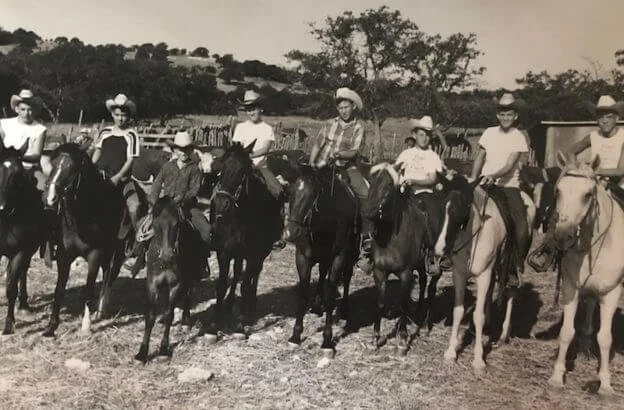
Camp La Junta
Camp La Junta: Forging Cowboys, Leaders, and Horsemen Since 1928
Founded in 1928, Camp La Junta has been shaping boys into leaders through hard work, responsibility, and horsemanship for more than 90 years. Horses are at the center of that mission. With 37 horses and more than 85% of campers participating in equine activities, La Junta is one of the most horse-forward boys’ camps in the nation. Boys strive to earn the title of “Rough Rider,” a tradition that has instilled confidence, grit, and respect in generations of campers.
On July 4, 2025, disaster struck. Floodwaters swept through Kerr County while camp was in session. Every camper was saved thanks to extraordinary counselors who calmed boys even as cabins floated away, and to one staff member who, in the dark, used her truck to pull down pipe fencing and save 36 horses. Still, the losses were staggering: one horse, every saddle and bridle, all tack and barn equipment, irrigation lines, and fencing. Beyond the horse program, 80% of camp facilities were damaged or destroyed, including the dining hall, commercial kitchen, four cabins, and all nine waterfront programs.
The impact was immediate and devastating. La Junta refunded tuition, losing half its annual revenue. But the heart of La Junta remains strong. Alumni Rough Riders (wearing their treasured belt buckles from summers long past) returned to help with cleanup, a living testament to the lifelong impact of this horse program.
Today, Camp La Junta stands at a crossroads. With your support, the boys of tomorrow will once again saddle up, ride out, and carry on the traditions of horsemanship, grit, and brotherhood that have defined La Junta for generations.
Together, we can help Camp La Junta get back in the saddle.
-

Camp Waldemar
Camp Waldemar: Horses at the Heart of Tradition
Camp Waldemar was founded in 1926 by Ora Johnson, who dreamed of building the finest girls camp in the nation. Her niece, Doris Johnson, carried on that vision for 47 years as camp director. Thanks to their dedication, Waldemar has become one of the oldest continuously operating camps in Texas and one of America’s most treasured girls’ camps.
Horses have always been central to Waldemar’s story. With 85–88 horses on site year-round, generations of campers have learned the values of horsemanship, responsibility, and teamwork here. Each summer, about half of Waldemar’s 850 campers participate in the equine program, culminating in a quadrille dressage presentation that showcases their hard work and growth.
On July 4, 2025, when historic floods swept through the Hill Country, Waldemar was in full session. Every camper was safely reunited with family, but the camp suffered heartbreaking losses. Seven horses in the lower pasture were lost, fencing and arena footing destroyed, and staff vehicles swept away. With tuition refunded and the camp closed for the remainder of the 2025 season, the burden of caring for the herd has fallen heavily on the shoulders of Waldemar’s leadership.
Yet the spirit of Waldemar is resilience. For nearly 100 years, girls have come here to discover courage, build lifelong friendships, and ride with confidence. With your support, that legacy will endure, and Waldemar’s horses will continue teaching lessons of patience, strength, and grace for generations to come.
Together, we can help Camp Waldemar get back in the saddle
-

Vista Camps
Vista Camps: Carrying on a Century of Tradition
For more than 100 years, the sister camps of Rio Vista (for boys) and Sierra Vista (for girls) have welcomed generations of campers to the banks of the Guadalupe River. Families return year after year, drawn to the blend of adventure, friendship, and tradition that has made Vista one of the oldest and most beloved camping programs in Texas.
Horses are a vital part of that story. With 33–35 horses living on site year-round, horsemanship is woven into daily camp life. Up to 75% of the girls and 60% of the boys participate in equine activities, supported by year-round wranglers who care for the herd. Even campers who don’t ride get to experience the magic of horses during Vista’s end-of-session carnival.
On July 4, 2025, devastating floods tore through Kerr County. While campers had just left the day before, the damage to Vista was immense. Miraculously, no horses were lost, but the well that irrigates their pastures and arenas was destroyed, fences were damaged, and all arena equipment, from helmets to mounting blocks, was washed away. The arena partially collapsed, and feed and hay remain an urgent need.
Beyond the barns, the destruction was staggering. Several buildings were gutted, every dock and waterfront program was lost, all sports equipment destroyed, and the camp’s beloved archives, updated every year for more than a century, were washed away. The flood left behind massive rock deposits, raising the riverfront and swimming hole by several feet. Removal has already begun and is using valuable resources to restore the camp. In all, Vista refunded over a million dollars in tuition and had to close for the rest of the 2025 season.
Yet through it all, the heart of Vista remains. For over a century, these camps have raised boys and girls into confident leaders, horsemen, and friends for life. With your support, Vista can rebuild its facilities, restore its herd, and continue a legacy that has endured for more than 100 summers.
Together, we can help Camp Rio Vista and Camp Sierra Vista get back in the saddle.
